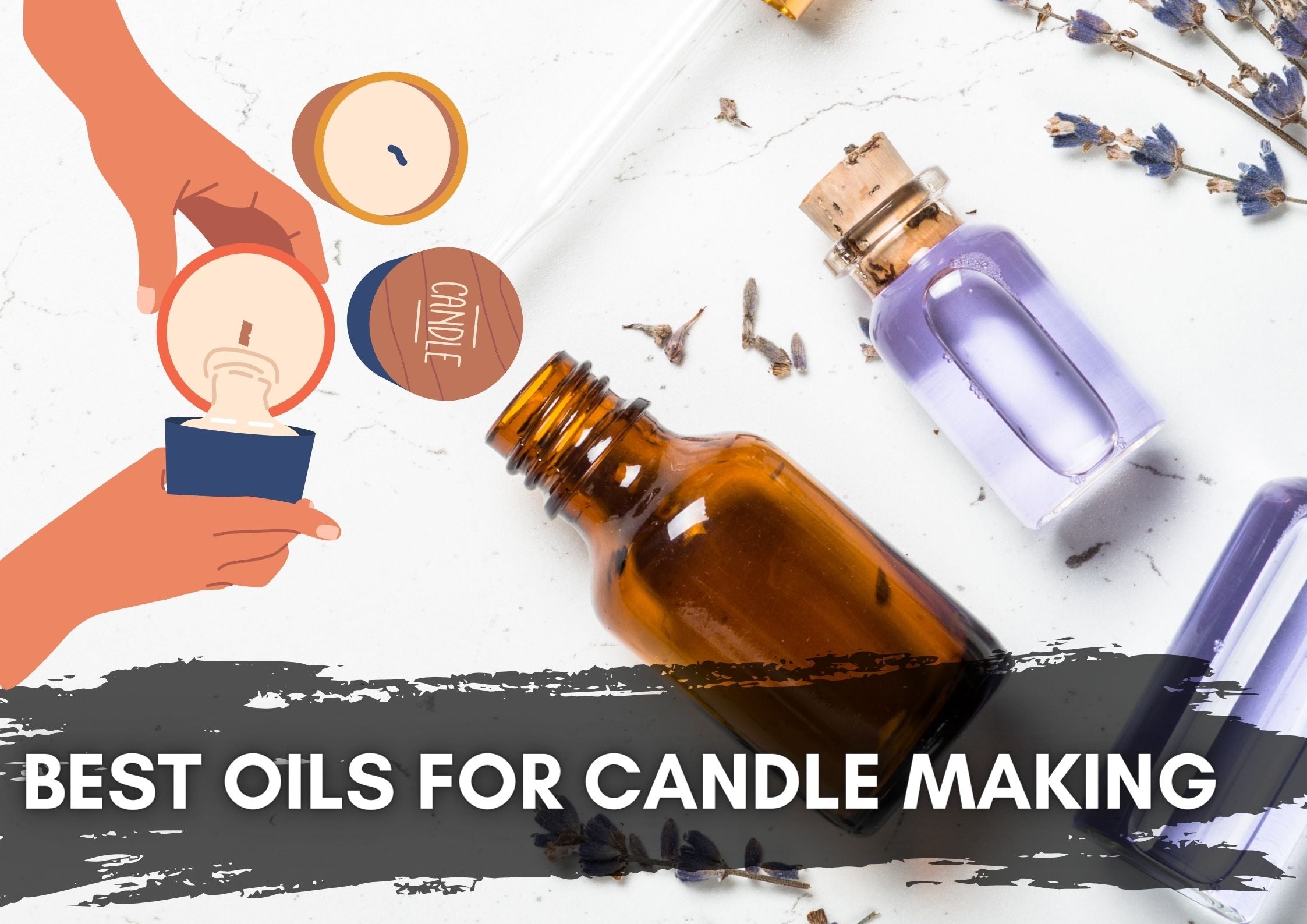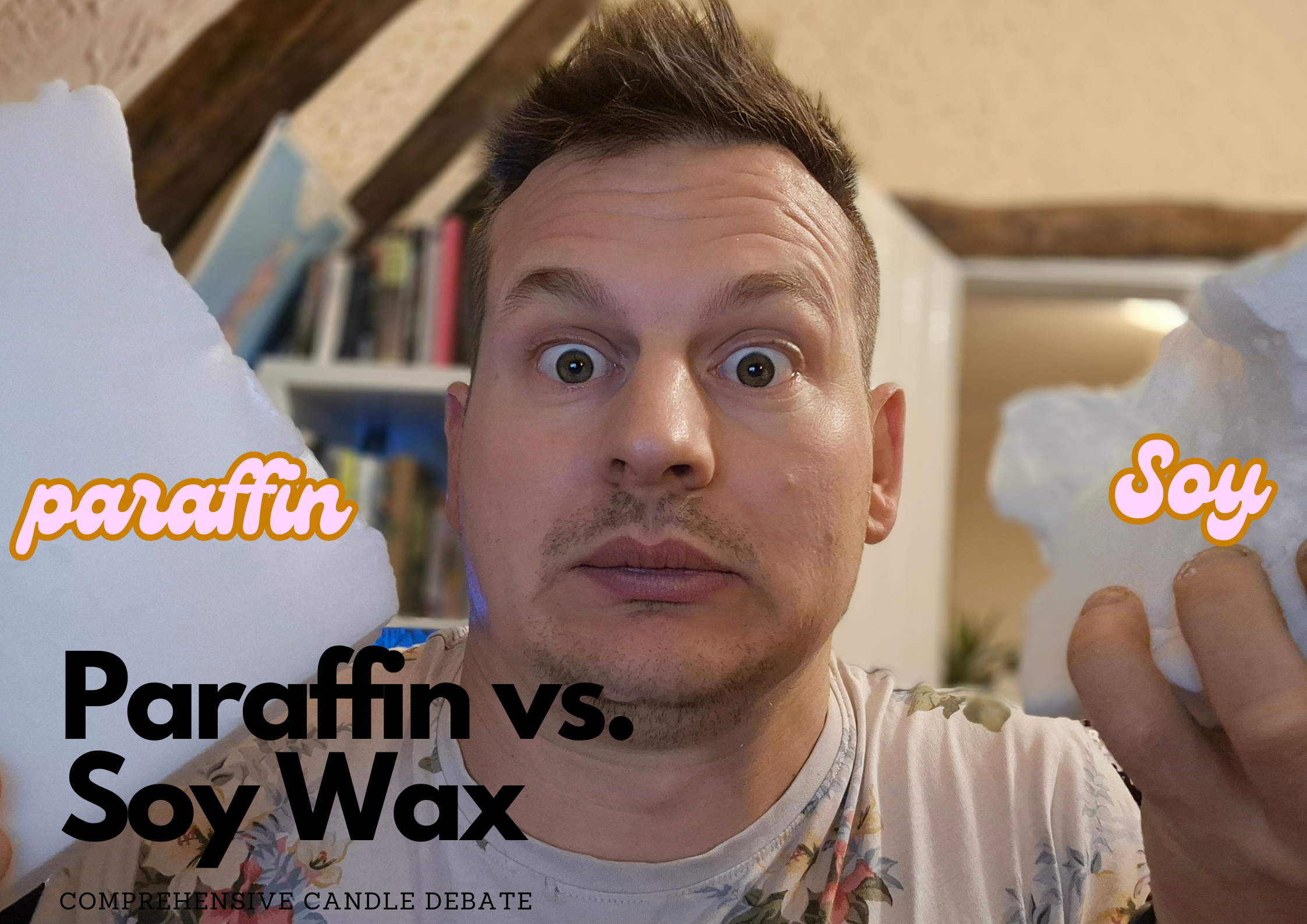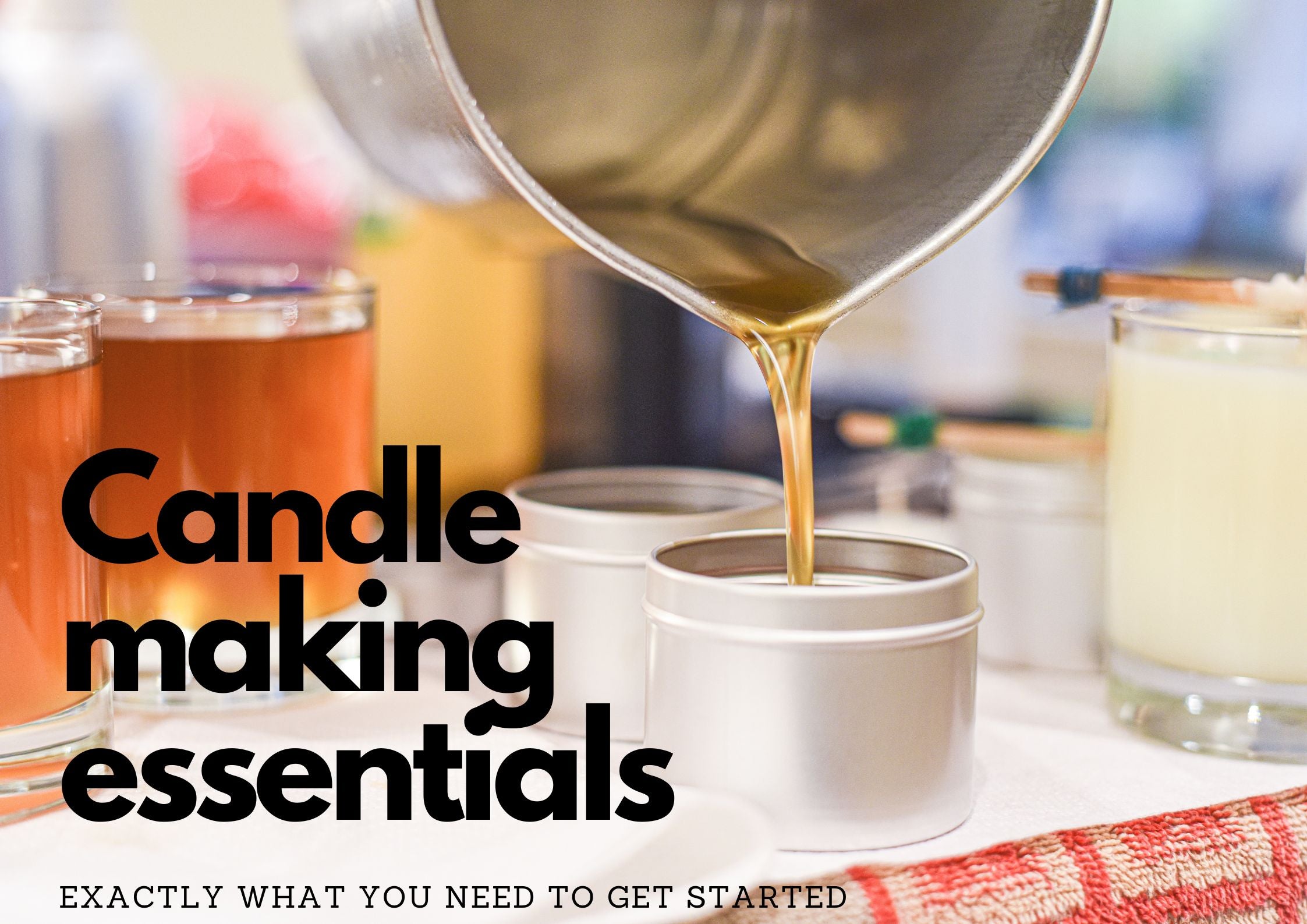Best Oils for Candle Making
Sep 04 , 2023
The Art of Candle Making: Discover the Best Oils for Candle Making!
Are you ready to embark on a journey into the enchanting world of candle making? Whether you're a seasoned artisan or a beginner looking to explore the craft, one of the essential aspects of creating beautiful candles is choosing the right oils. In this comprehensive guide, we'll delve deep into the realm of candle-making oils, explore the differences between fragrance oils and essential oils, reveal the best oils for candle making, and provide you with expert tips to ensure your creations are nothing short of spectacular.
The Difference Between Fragrance Oils and Essential Oils
Before we dive into the best oils for candle making, it's crucial to understand the fundamental difference between fragrance oils and essential oils. Both have their merits and can be used in candle making, but they serve distinct purposes.
Fragrance Oils

Fragrance oils are synthetic blends specifically formulated to provide a wide range of scents. These oils are designed to mimic various aromas, from the sweet scent of vanilla to the crisp aroma of pine trees. The advantage of using fragrance oils is their consistency and ability to maintain the desired scent throughout the candle's burn time.
Pros of Fragrance Oils:
- Wide Variety: Fragrance oils offer an extensive selection of scents, allowing you to experiment with countless combinations.
- Consistency: They provide a consistent scent throw, ensuring your candles smell the same every time they burn.
- Affordability: Fragrance oils are often more budget-friendly than essential oils.
Cons of Fragrance Oils:
- Synthetic: Some fragrance oils contain synthetic chemicals, which may not align with a natural or vegan candle-making approach.
- Limited Therapeutic Benefits: They lack the potential therapeutic benefits that essential oils offer.
Essential Oils

On the other hand, essential oils are extracted from plants, flowers, and herbs. These oils contain the concentrated essence of the source material, offering not only delightful scents but also potential therapeutic benefits such as relaxation, stress relief, and mood enhancement. However, essential oils can be volatile, and their scent might weaken during the candle's burn.
Pros of Essential Oils:
- Natural: They are derived from natural sources, aligning with a more eco-friendly and holistic approach to candle making.
- Therapeutic Properties: Essential oils can provide emotional and physical well-being benefits.
- Customization: You can blend essential oils to create unique scents tailored to your preferences.
Cons of Essential Oils:
- Price: Essential oils can be more expensive than fragrance oils due to the extraction process.
- Scent Consistency: The scent may dissipate faster compared to fragrance oils.
Now that you understand the differences between fragrance oils and essential oils, let's explore the best oils for candle making based on your preferences and goals.
Top 6 Best Oils for Candle Making
1. Lavender Essential Oil
Best for: Relaxation and Stress Relief
Why: Lavender essential oil is a timeless favorite in candle making. Its calming and soothing properties make it perfect for winding down after a long day. Create a serene atmosphere in your home with the gentle, floral aroma of lavender.
2. Vanilla Fragrance Oil
Best for: Sweet and Cozy Ambiance
Why: Vanilla fragrance oil adds warmth and sweetness to your candles, creating a cozy atmosphere reminiscent of freshly baked goods. It's a delightful choice for creating a welcoming and comforting ambiance.
3. Eucalyptus Essential Oil
Best for: Clearing the Air
Why: Eucalyptus essential oil is known for its invigorating and purifying qualities. It's an excellent choice for candles designed to help clear the air and promote a sense of freshness in your space.
4. Citrus Blend Fragrance Oil
Best for: Energizing and Uplifting
Why: Citrus blends, including lemon, orange, and grapefruit, provide a burst of energy and positivity. These fragrance oils are fantastic for uplifting your mood and creating an invigorating atmosphere.
5. Patchouli Essential Oil
Best for: Earthy and Grounding Scents
Why: Patchouli essential oil offers a rich, earthy aroma that's perfect for those seeking a grounding and meditative experience. It's often used in candles designed for yoga or meditation practices.
6. Sandalwood Fragrance Oil
Best for: Sensual and Relaxing Ambiance
Why: Sandalwood fragrance oil exudes a warm, sensual scent that's ideal for creating a relaxing and intimate atmosphere. It's a popular choice for romantic evenings or self-care rituals.
Your Burning Questions Answered
Q1: Can I Mix Fragrance Oils and Essential Oils?
A1: Absolutely! Mixing fragrance oils and essential oils allows for endless creativity and customization. Just ensure you follow recommended fragrance load guidelines to maintain the candle's quality and safety.
Q2: How Much Oil Should I Add to My Candle Wax?
A2: The ideal oil-to-wax ratio typically ranges from 5% to 15%, depending on the potency of the oil and the type of wax you use. Always refer to the manufacturer's recommendations for precise measurements.
Q3: Why Do Some Candle Scents Weaken During Burning?
A3: Essential oils, being natural, can evaporate faster than synthetic fragrance oils. To enhance scent retention, consider using a fragrance enhancer or blending essential oils with fixative scents like cedarwood or benzoin.
Common Pitfalls and How to Overcome Them
Creating the perfect scented candle can be a delightful journey, but it's not without its challenges. Here are some common pitfalls and expert tips on how to overcome them:
1. Scent Weakens Over Time
Solution: To maintain a strong scent throw, consider using a fragrance enhancer or increasing the oil concentration within the recommended limits. Additionally, using high-quality oils can help retain the scent's potency.
2. Sooty Candle
Solution: Soot buildup often results from using too much fragrance oil. Reduce the fragrance load, trim the wick regularly, and ensure proper candle maintenance to prevent excessive soot.
3. Uneven Scent Distribution
Solution: Properly mix your fragrance or essential oils into the melted wax before pouring to ensure even distribution. Stir gently and consistently for a uniform scent throughout the candle.
4. Fragrance Allergies
Solution: When crafting candles for gifts or sale, always provide clear information about the oils used to allow potential users to assess any allergies or sensitivities.
In Conclusion
Candle making is a delightful and creative journey that allows you to infuse your space with captivating scents and ambiance. By understanding the differences between fragrance oils and essential oils and choosing the best oils for candle making, you can craft candles that not only look beautiful but also elevate your environment and soothe your senses.
Experiment, customize, and enjoy the therapeutic benefits of crafting your own scented candles. Whether you're aiming for relaxation, invigoration, or simply creating a warm and welcoming atmosphere, the right choice of oils can make all the difference in your candle





